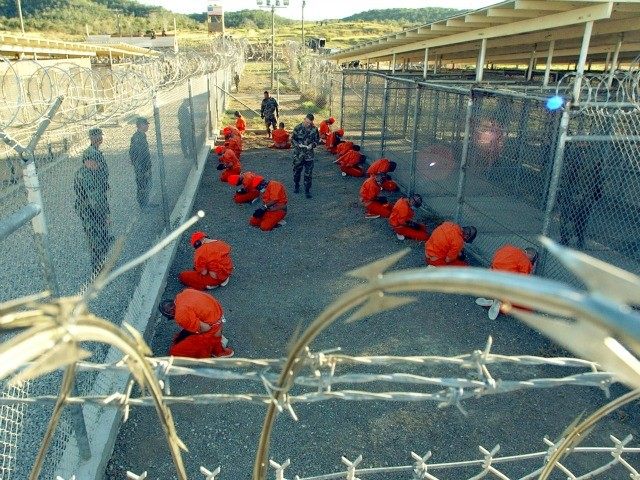U.S. President Donald Trump’s administration will make decisions on whether to release detainees still held at the American military prison in Guantánamo Bay, Cuba, “on a case-by-case basis,” the White House National Security Council (NSC) revealed.
Air Force Maj. Ben Sakrisson, a Pentagon spokesman, told the Associated Press (AP) that the Trump administration will review prisoner case files periodically but added that the government “is still considering whether or not to transfer detainees.”
Tara Rigler, an NSC spokeswoman, acknowledged that the detention facility, commonly known as Gitmo, will “remain an available option in the war on terrorism.”
However, she explained to the AP that Trump would make decisions related to the prisoners “on a case-by-case basis and in the best interest of the United States,” without elaborating further.
Gitmo still holds 41 detainees, including 26 who have been deemed “forever prisoners,” or too dangerous to release.
Referring to the “forever prisoners,” the AP notes they “could potentially be reviewed and added to the cleared list.”
“Several may still be prosecuted and are unlikely to be set free, but lawyers for the rest are considering filing new legal challenges, arguing that a policy of no releases would mean their confinement can no longer legally be justified as a temporary wartime measure,” adds the news outlet.
Former President Barack Obama’s parole-style Periodic Review Board (PRB) has approved five of the 41 prisoners for transfer.
U.S. military commissions have charged the remaining ten, which includes some terrorists who are awaiting a death penalty tribunal for their alleged role in the 9/11 attacks on the American homeland.
“The prisoners who have been cleared for release come from [Morocco], Algeria, Yemen, and Tunisia. Another was born in the United Arab Emirates but has been identified in Pentagon documents as an ethnic Rohingya who is stateless,” notes the AP.
Prisoners from war-ravaged Yemen make up the largest concentration from a single country (14) of the detainees still held at the military prison.
Yemen’s chaotic conditions have prompted the U.S. to prohibit the repatriation of Yemeni prisoners held at Gitmo.
The latest assessment by the Office of the Director of National Intelligence (ODNI) points out that nearly three out of every ten Gitmo detainees who had been released (728) as of mid-July 2017 are suspected (90) or confirmed (122) of having returned to terrorist activities.
While most (137) of the prisoners who are suspected or confirmed of having re-engaged in terrorism remained at large as of mid-July, the remaining ones are either dead (37) or in foreign custody (38).
In 2016, the U.S. officials revealed that terrorists formerly held at Gitmo had killed an estimated half-dozen Americans.
Before taking office, President Trump wrote on Twitter that there should be no further releases from Gitmo, noting, “These are extremely dangerous people and should not be allowed back onto the battlefield.”
Less than a week after Trump became the commander-in-chief, the New York Times (NYT) reported that the president was considering signing an executive order that would direct the Pentagon to continue using Gitmo “for the detention and trial of newly captured” detainees linked to al-Qaeda, the Taliban, and the Islamic State (ISIS/ISIL).
In July, the Trump administration signaled that it plans to “load up” Gitmo with newly captured “bad dudes,” as the president vowed before taking office.
Officials from the U.S. Department of Justice (DOJ), including Attorney General (AG) Jeff Sessions, visited the detention center.
Ian Prior, a DOJ spokesman, explained that the purpose of Sessions’ first trip to Gitmo as AG was to gain “an up-to-date understanding of current operations.”
The Pentagon is expected to spend nearly half a billion dollars on new construction at Guantánamo.
“It is entirely unprecedented for an administration to take the position that there will be no transfers out of Guantánamo. without regard to the facts, without regard to individual circumstances,” Pardiss Kebriaei, a detainee attorney with the New York-based Center for Constitutional Rights, told the AP.

COMMENTS
Please let us know if you're having issues with commenting.